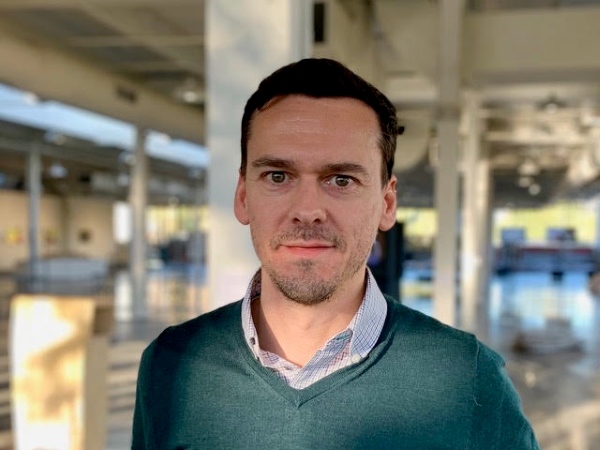From the lecture halls of Ca' Foscari to the history of cinema in Canada, through NYU: Ca’ Foscari alumnus Alberto Zambenedetti is the new Director of the Cinema Studies Institute at the University of Toronto.
The Institute, celebrating its 50th anniversary this year, offers a prominent and long-standing programme for studying the art of cinema in Canada and North America.
Zambenedetti began his international academic career by obtaining a degree in Foreign Languages and Literature. “I wrote a thesis on the text/image relationship in the films of Welsh director Peter Greenaway. My supervisor, Loretta Innocenti, and co-supervisors, Flavio Gregori and Vincenzo Patanè, provided valuable guidance and feedback. I vividly remember my defence in the Aula Magna at Ca' Dolfin: the tension, Professor Paolo Puppa's questions, and the feeling that things had only just begun.”
His career did not stop in Venice. “I started my career in Venice, but I encountered the tough reality of Italian competitions and decided to try my luck abroad. I was fortunate to get into New York University for a Master's degree in Cinema Studies. To support myself, I taught language courses in the Italian department. After completing my Master's, I pursued a PhD in Italian Studies at NYU, where I wrote my doctoral thesis on the cinema of Italian migrations. I then spent two years as a lecturer at Staten Island College (City University of New York), followed by a year as a visiting professor at the University of Toronto, and two years as a post-doctoral fellow at Oberlin College in Ohio. Finally, I landed a permanent job at the University of Toronto, where I am still working now.”
Even after attending prestigious overseas institutions, Zambenedetti emphasizes the lasting impact of Ca' Foscari University and its faculty. “I entered the university with a lot of scepticism, not at all convinced that I would complete my studies. I was not a model student. Fortunately, I met professors who knew how to ignite in me the curiosity needed to continue learning new things, day after day, with a lot of effort to fill in my gaps. In addition to the people already mentioned, I certainly owe much to Paolo Balboni (Theory and technique of mass communication) and Fabrizio Borin (History of cinema). The late Rino Cortiana and Giovanni Cacciavillani taught me how to read a text in depth and with dedication. Paolo Ulvioni and Giannantonio Paladini led me to love history. And then the language experts, who showed a real vocation for teaching: Véronique Mounition and John Moore above all.”
Zambenedetti’s interest and passion for cinema, however, preceded his university studies: “As a child, whenever my mother allowed, I would skip school to watch classic movies in the late evening or catch matinees on Italian TV channels Rai 3 or Rete 4. I also frequented the Venetian cinemas, which were plentiful in the 1980s when I was growing up. Whenever I return to Venice, I like to visit these magical spaces that were part of my childhood. Nowadays, these spaces have been turned into restaurants, mask shops, and boutiques or have been left abandoned, like the Cinema Accademia. However, they still carry remnants of their glorious past for those who know where to look. Movie tickets were cheap, and so were the sweets. I fondly remember the screenings of Stanley Kubrick's complete works at Cinema Olimpia, thanks to the efforts of Prof. Borin, as well as the CircuitoCinema lectures by Roberto Ellero and the renowned critic Roberto Pugliese. Even today, I occasionally revisit my notes from those lectures to find inspiration for my own teaching.”
Zambenedetti has also gone back to his roots in terms of his current research interests, devoting himself to projects celebrating Italy's cinematic heritage “I have just completed a critical edition of film concepts and screenplays by the Venetian Francesco Pasinetti. He is a key figure in creating and disseminating film culture in Italy, and yet he is not well known outside our borders. Then I am continuing my Fellini studies (an exhibition I co-curated just ended in Toronto), and my interest in movement and cinema always underlies my reading and my writing.”
To conclude, Zambenedetti emphasises the importance of authentic and personalised experiences for those wishing to embark on a journey into the study of cinema history: “I would say finding mentors, role models to follow and lean on is crucial. And then going to the cinema often and watch all sorts of films. The streaming offerings are so vast they can be overwhelming. Often, one ends up not watching anything, or worse still, watching distractedly. It's better to return to the cinema, where film is alive and demands our attention. Only then can you discover its most authentic pleasures.”










